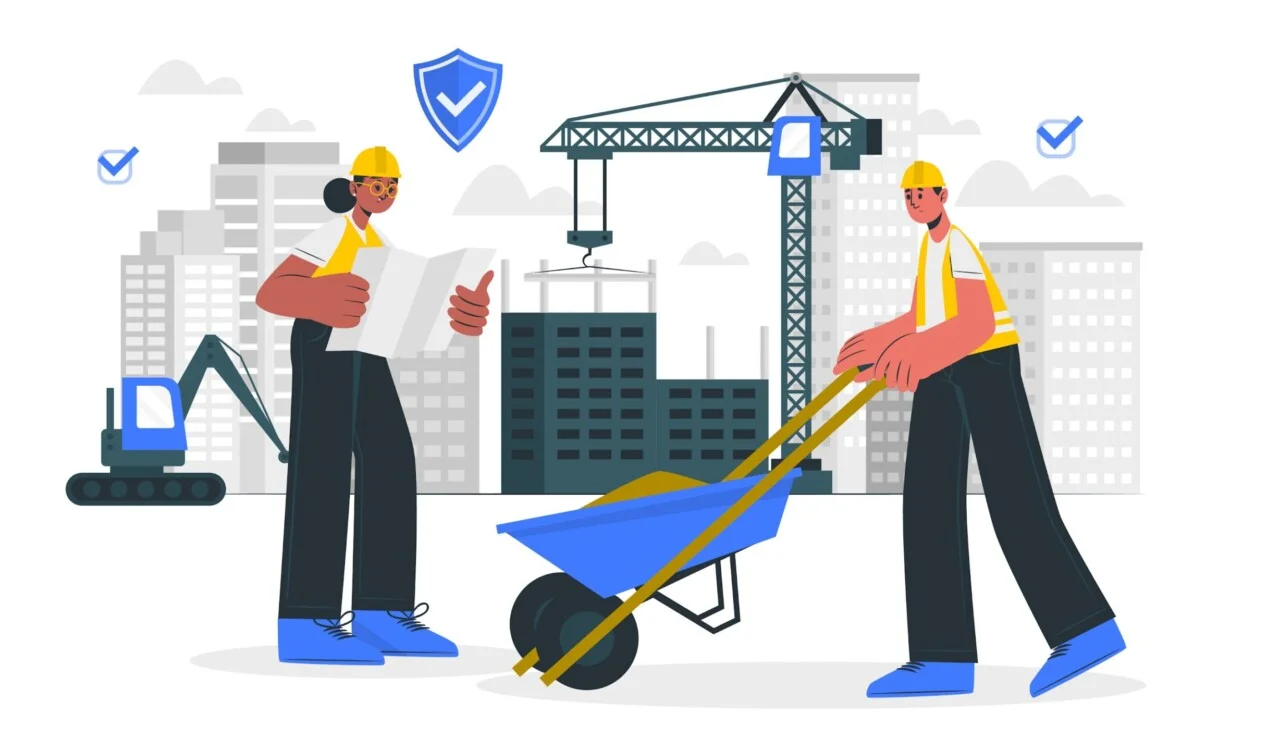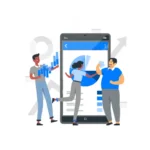Field employees are often exposed to a variety of hazards, including traffic accidents, falls, electrical injuries, and exposure to hazardous substances. As a result, it is important for employers to take steps for field worker safety to create a safe working environment.
Consider this– your healthcare professional conducting home visits could face physical assaults from patients or meet a car accident during travel. Likewise, a construction worker may be harmed due to mishandling equipment. Such safety concerns can be particularly challenging to handle if you haven’t adopted safety software yet.
Lone workers inherently encounter elevated health and safety hazards due to the absence of immediate assistance during emergencies. Establishing an effective lone worker safety program entails an assessment of potential dangers and risks, followed by the implementation of suitable protective measures.
If you don’t have a safety app in place, these myriad potential risks beg one question- are your field employees safe while working?
Hazard identification can significantly reduce the frequency of workplace injuries, emergencies, and other critical incidents. Therefore, integrating real-time digital safety software into your worker safety strategy serves as a proactive measure to protect lone workers from unforeseen risks.
In a recent worldwide survey, more than 25,000 participants have emphasized that the primary concern for businesses revolves around the well-being of their employees. Looking ahead to the next six months, the most crucial focal point centers on leveraging technology to guarantee employee safety within the workplace.
While pen-and-paper methods have been used for a long time, they lack effectiveness and the ability to comprehensively assess and advance safety programs. Employing safety software streamlines compliance obligations, facilitating seamless tracking, reporting, and data analysis.
In this blog post, we will delve deeper into why having safety software is imperative for your field services employees.
Field Worker Safety: Lone Worker
In general, the most effective choice is a digital, real-time lone worker solution (such as a smartphone app designed for lone workers), ensuring that your remote and mobile employees remain secure, connected, and supported 24/7 when they are on the field.
At a minimum, a lone worker safety solution should enable workers to share their real-time locations, periodically confirm their well-being through check-ins, and receive immediate assistance in case of emergencies or if they become unresponsive.
With some software, workers can manually activate a safety alarm using the app or establish a tailored safety assessment process to identify potential risks.
It even allows for multi-tiered escalation of threats in the back office using IVR, SMS, and email. Notifications can include user location, the nearest emergency contact number (e.g., PSAP 911), and additional relevant information.
In some cases, an employee facing a difficult situation can activate an SOS alarm by either pressing the dedicated SOS button within the app or rapidly pressing the phone’s ‘power’ button four times.
Managers have access to a visual command-and-control dashboard through both the web platform and the mobile app. This dashboard enables them to observe the real-time location and status of employees on a map.
Must have Features for Field Worker Safety
While choosing safety software for your business, you must make sure that the software provides you with maximum benefits over and above the basic safety features. Here are a few things to consider-
1. Compatibility across devices
It is unlikely that all your field workers are using the same operating system on their devices. Therefore, avoid investing in a safety app that is only available on a certain OS type, version, or device model.
For instance, allGeo is compatible with both Android and iOS devices, encompassing smartphones and tablets. Employing a reliable hybrid positioning method that incorporates Wi-Fi and GPS sensors, the app even accurately determines the user’s real-time location, catering to both indoor and outdoor environments.
2. Real-time monitoring
Needless to say, the software’s end-to-end coordination must include real-time location tracking for you to locate your employees in case of an emergency.
Along with it, you should be able to access up-to-the-minute details about employee and phone status, encompassing factors like location, recent activity, battery level, and more. This information can be configured to activate alerts based on various status updates and events.
A comprehensive system allows team members to both view and exchange location information within the app. The allGeo app facilitates communication among individuals in the field through in-app messages.
3. Threat Escalation Workflow
Your software must enable you to establish a preemptive safety workflow designed to oversee employee well-being and identify potential hazards. These workflows should be tailored to align with your security protocols.
allGeo allows the implementation of personalized criteria and rules to assess threats before initiating escalation procedures. You can also set up a multi-tiered threat escalation system utilizing IVR, SMS, and/or email communication channels.
Actions triggered by predefined rules can identify potential threats. Along with it, a personalized user-validation mechanism eliminates false alarms. Based on the severity of the threat, you can determine whom to escalate the issue to.
Apps can let you decide the channel to be used too. With allGeo, you can configure alerts and escalation processes through a variety of communication channels, including text messages, emails, or IVR calls. This system also facilitates integration with back-office operations and call centers, ensuring a comprehensive approach to managing alerts and responses.
Conclusion
In field services, where employees often find themselves working in remote locations or potentially hazardous environments, ensuring their safety takes center stage. This is where safety app software emerges as a transformative solution.
As businesses continue to prioritize employee well-being, investing in robust safety app software becomes essential for employee retention and avoiding any potential legal issues due to non-compliance with safety standards. The assurance of 24/7 support, accurate tracking, and effective communication translates to not only enhanced safety but also improved morale, higher productivity, and a fortified reputation.
In conclusion, the adoption of safety app software isn’t just a technological upgrade; it’s a commitment to the people who drive your field services business. By embracing these cutting-edge solutions, you not only protect your employees but also pave the way for a safer, more efficient, and more resilient future for your business as a whole.


